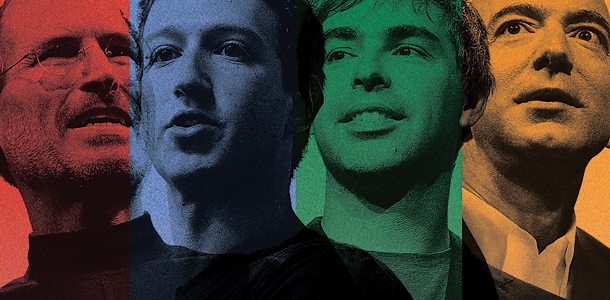While we're hearing more and more about the term, Big Data didn't happen overnight. The data deluge could not have happened without the following taking place:
- Mobility
- Broadband
- Cloud computing and the drastic decline in storage costs
- Social media
- New solutions to help organizations manage massive amounts of unstructured data (e.g., Hadoop, NoSQL, columnar databases, etc.)
- The consumerization of IT

This is by no means a definitive list. People like Nate Silver have made data cool. And, let's not forget the elephants in the room: consumer-oriented, data-driven companies such as Amazon, Apple, Facebook, Google, Twitter, Netflix and others. These companies have made data very visible. "Oh, so that's how they know that I like [name of movie]or [name of lost high school connection]." Brass tacks: High-profile companies have brought data to the forefront.
Make no mistake: Data is a source of competitive advantage. For instance, consider Facebook's Graph Search. While still in its infancy, its potential is nothing short of enormous - and plenty of important people have taken notice.
Graph Search scares the hell out of Larry Page and the rest of Google's top brass. What if you can just see what your friends buy and recommend? What if you trust - and act upon - your friends' "unbiased" recommendations more than those of a small text ad? All of a sudden, billions made on keyword searches seem less desirable to advertisers. This represents the core of Google's business model. Give Google credit here - it doesn't want to become the next Microsoft. It fears disruption and disintermediation. And it should.
Simon Says: You Can Copy the Tech, but Not the Data
So, why can't Google just mimic Graph Search? After all, Google employs a slew of smart cookies. Its coffers contain boatloads of cash. The company employs some of the most sophisticated technology out there. And Google executives understand the threat to its empire. So, what's stopping Google here?
You guessed it: the data. Google can't replicate Graph Search because it doesn't possess - nor can it access - Facebook's massive trove of data. Specifically, it doesn't know what more than a billion people like. Google searches just can't produce results like "which one of my friends ate at a Chinese restaurant in the last year." And this trove is growing as Facebook collects data from users while not on the Facebook site:

Source: Wall Street Journal
While he with the most data doesn't win, data is a significant source of competitive advantage. Don't let anyone tell you any different.
Feedback
What say you?
